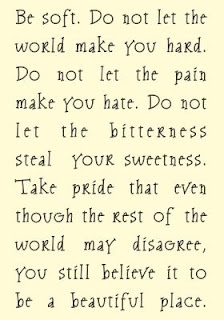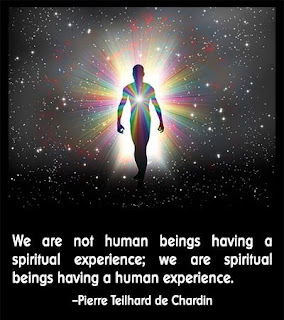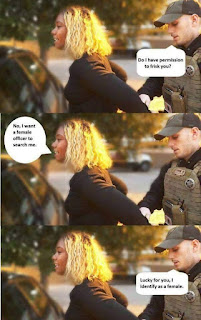The Guardian, UK
written by Martin Chulov Nadia al-Faour in Jeddah
Sunday June 24, 2018
Police officers gave them flowers, fathers gave their blessing and locals marked the moment with humour as Saudi women took to the streets in their cars after the ban on driving was lifted.
As the clock ticked past midnight on Saturday, a group of women who had been granted licences started their engines, some with fathers or brothers alongside, and others in new cars bought for the occasion. Several women shouted with delight. Others cried, and many more took videos of their first forays at the wheel.
The celebratory mood was mostly confined to pockets of Riyadh and Saudi Arabia’s second city, Jeddah, where the few women who have so far been granted licences were being feted as celebrities. Among them was Fadya Basma, a driver for a ride-sharing company, who is one of the first in Saudi Arabia to legally shepherd men around. “It’s a wonderful day,” she said. “And it will change things. Saudi will never be the same again.”
Samar Almogren, a talkshow host and writer, said: “I always knew this day would come. But it came fast. Sudden. I feel free like a bird.”
Saudi luminaries were quick to herald the moment. Prince Alwaleed bin Talal, , posted a video at 12.01am local time (10.01pm BST) of himself with his daughter Rim at the wheel. “Mummy is not driving a buggy, but a real car,” he said. “Saudi Arabia has finally entered the 21st century.”
Slogans and messages of support were shared on social media. “Today, you take on the streets, tomorrow, Mars,” said one. “This day will be marked in history,” said another. “Drive – we are with you.”
Aware of the potential for the lifting of the ban to shift views about the rigidly conservative state, much of the lead-up has been heavily stage-managed, with lucrative consultancies offered to craft a message of a grateful people offering thanks to Saudi Arabia’s crown prince, Mohammed bin Salman.
Aseel al-Hamad, a Saudi racing driver, has never driven on a track inb her home country, despite being a board member of the country’s motoring foundation. Her debut at the French Grand Prix, where she drove a Formula One car in a parade lap, was promoted by a public relations company, which released a statement in her name.
“I’ve always loved car toys,” it said. “I had the privilege of driving race cars all over the world, but today will be the first in my beloved country. It’s a very special moment.”
Photographs of police officers handing out flowers to female drivers were also carefully choreographed, but across the country, finding a woman behind the wheel during daylight hours was a difficult task. So far, the number of licences handed out has not been publicised. In Jeddah, about 30 women can legally drive. Many thousands more have applied.
Nevertheless, support for the move and a belief that the small advance guard of drivers would soon lead to an influx appeared to be widespread and spontaneous. Ahd Niazy, a writer, said: “This means the world to me, and to the country. This generation changes things.”
Women with international driving licences are thought to be given priority in being approved to drive, along with those deemed not to be involved in activism or seen as unlikely to pose a political risk.
Nour, 24, speaking from a coffee shop in Jeddah’s corniche, said: “All I want to do is take to the roads. As soon as I can, I will. This is a great achievement for all women and it is definitely the key to bigger changes.”
Saudi drivers from ride-sharing companies such as Uber seemed to be less convinced. “I don’t support women driving because I believe they are not the best drivers,” said one. Asked whether his three sisters would soon follow their compatriots’ lead, he said: “I’m not going to allow them and they did not even ask. They have a driver who can take care of everything.”
Any resistance to the move in Saudi Arabia’s deeply conservative society is difficult to gauge. A crackdown on dissent over recent months has left many reluctant to express opinions, especially if they are at odds with official views. Fatima, speaking at a mall in Jeddah, said: “This is not the time to be defying anyone. What I think is not important.”
State media was effusively supportive, with government-run titles lauding newfound independence and potential household savings delivered by reducing a demand for foreign drivers.
Al-Mowaten, a news website, said: “Women being allowed to drive is a necessity more than a luxury. Women will rely on themselves when facing emergencies and difficult circumstances in which they will need to drive and act quickly, especially if a husband or other family member is suddenly stricken with an illness.”
Saudi Arabian women will be able to drive trucks and motorcycles, officials confirm. https://t.co/IKNCBmSTET— GlobalAwareness101 (@Mononoke__Hime) December 16, 2017
The Daily Mail, UK
written by Sophie Inge
Saturday December 16, 2017
Saudi Arabian women will be able to drive trucks and motorcycles, officials have said, three months after the kingdom announced a historic decision to end a ban on women driving.
In September, King Salman issued a decree saying women will be able to drive from next June as part of an ambitious reform push in the conservative kingdom.
The Saudi General Directorate of Traffic gave details of the new regulations that will follow the lifting of the ban on the official Saudi Press Agency late on Friday.
'Yes, we will authorise women to drive motorcycles' as well as trucks, it said, adding that the royal decree stipulates that the law on driving will be 'equal' for both men and women.
There will be no special licence plate numbers for female-driven cars, it said.
But women involved in road accidents or who commit traffic violations will be dealt with at special centres that will be established and run by women.
Saudi Arabia was the only country in the world to impose a ban on women driving and its maintenance was seen around the world as a symbol of repression in the Gulf kingdom.
Its historic decision to allow women to drive from next June has been cheered inside the kingdom and abroad - and comes after decades of resistance from female activists, many of whom were jailed for flouting the ban.
Saudi Arabia has some of the world's tightest restrictions on women.
Under the country's guardianship system, a male family member - normally the father, husband or brother - must grant permission for a woman's study, travel and other activities.
— GlobalAwareness101 (@Mononoke__Hime) October 28, 2017AP ANALYSIS: Saudi (Crown Prince Salman) promise of 'moderate Islam' shifts power.https://t.co/ghvZzzgkJe
Fox News
written by Aya Batrawy, AP
Saturday October 28, 2017
DUBAI, United Arab Emirates – The man who may soon be king of Saudi Arabia is charting a new, more modern course for a country so conservative that for decades there were no concerts or film screenings and women who attempted to drive were arrested.
Since catapulting to power with the support of his father, the king, Crown Prince Mohammed bin Salman has pushed forth changes that could usher in a new era for one of the United States' most important allies and swing the kingdom away from decades of ultraconservative dogma and restrictions. He's introduced musical concerts and movies again and is seen as the force behind the king's decision to grant women the right to drive as of next year.
Opposition to the changes has so far been muted, but some critics of the prince have been detained. When social openings in the kingdom were taking place four decades ago, Sunni extremists opposed to the monarchy laid siege to Islam's holiest site in Mecca.
Prince Mohammed's agenda is upending the ruling Al Saud's longstanding alliance with the kingdom's clerical establishment in favor of synchronizing with a more cosmopolitan, global capitalism that appeals to international investors and maybe even non-Muslim tourists.
The prince grabbed headlines in recent days by vowing a return to "moderate Islam." He also suggested that his father's generation had steered the country down a problematic path and that it was time to "get rid of it."
In his sweeping "Vision 2030" plan to wean Saudi Arabia off of its near total dependence on petrodollars, Prince Mohammed laid out a vision for "a tolerant country with Islam as its constitution and moderation as its method."
Prince Mohammed, or MBS as he is widely known, used a rare public appearance on stage at a major investor conference in the capital, Riyadh, this week to drive home that message to a global audience.
"We only want to go back to what we were: Moderate Islam that is open to the world, open to all religions," he said in the ornate grand hall of the Ritz-Carlton. "We will not waste 30 years of our lives in dealing with extremist ideas. We will destroy them today."
His remarks were met with applause and a front-page article in Britain's Guardian Newspaper. In expanded remarks to the paper, the 32-year-old prince said that successive Saudi monarchs "didn't know how to deal with" Iran's 1979 revolution that brought to power a clerical Shiite leadership still in place today.
That same year Saudi rulers weathered a stunning blow: Sunni extremists laid siege to Islam's holiest site in Mecca for 15 days. The attack was carried out by militants opposed to social openings taking place at the time, seeing them as Western and un-Islamic.
Indeed, Sunni extremists have used the intolerant views propagated by the ideology known as Wahhabism to justify violence against others. Wahhabism has governed life in Saudi Arabia since its foundation 85 years ago.
The ruling Al Saud responded to the events of 1979 by empowering the state's ultraconservatives. To hedge the international appeal of Iran's Shiite revolution, the government backed efforts to export the kingdom's foundational Wahhabi ideology abroad. This ultraconservative interpretation of Islam has guided life in Saudi Arabia since its foundation 85 years ago.
To appease a sizeable conservative segment of the population at home, cinemas were shuttered, women were banned from appearing on state television and the religious police were emboldened.
Much is now changing under the crown prince as he consolidates greater powers and prepares to inherit the throne.
There are plans to build a Six Flags theme park and a semi-autonomous Red Sea tourist destination where the strict rules on women's dress will likely not apply. Females have greater access to sports, the powers of the once-feared religious police have been curtailed and restrictions on gender segregation are being eased.
Unlike previous Saudi monarchs, such as King Abdullah who backed gradual and cautious openings, Prince Mohammed is moving quickly.
More than half of Saudi Arabia's 20 million citizens are below the age of 25, meaning millions of young Saudis will be entering the workforce in the coming decade. The government is urgently trying to create more jobs and ward off the kinds of grievances that sparked uprisings in other Arab countries where unemployment is rampant and citizens have little say in government.
The prince has to find solutions now for the problems he is set to inherit as monarch.
"What MBS is doing is a must requirement for any kind of economic reform. Economic reform requires a new Protestant ethic if you will, a new brand of Islam," said Maamoun Fandy, director of the London Global Strategy Institute.
This new Saudi version of "moderate Islam" can be understood as one that is amenable to economic reforms; it does not close shops at prayer time or banish women from public life, Fandy said.
In other words, Saudi Arabia's economic reforms require social reforms to succeed.
Buzz words like "reform," ''transparency" and "accountability" — all used by the prince in his promotion of Vision 2030 — do not, however, mean that Saudi Arabia is moving toward greater liberalism, democracy, pluralism or freedom of speech.
The government does not grant licenses to non-Muslim houses of worship, and limits those of its Shiite Muslim citizens.
The prince has also made no mention of human rights concerns. If anything, dozens of the prince's perceived critics have been detained in a warning to others who dare to speak out.
Some of those arrested were seen as critics of his foreign policies, which include severing ties with Qatar, increasing tensions with Iran and overseeing airstrikes in Yemen that have killed scores of civilians and drawn sharp condemnation from rights groups and some in Washington.
Meanwhile, Prince Mohammed faces a Saudi public that remains religiously conservative. That means he still needs public support from the state's top clerics in order to position his reforms as Islamic and religiously permissible.
These clerics, many of whom had spoken out in the past against women working and driving, appear unwilling or unable to publicly criticize the moves. In this absolute monarchy, the king holds final say on most matters and the public has shown it is welcoming the changes.
___
EDITOR'S NOTE — Aya Batrawy, an Associated Press reporter since 2011, has reported on the Middle East for the past decade and has led AP's coverage of Saudi Arabia since 2013.
— Arab News (@Arab_News) December 11, 2017#SaudiArabia announces that #cinemas will be allowed to operate across the Kingdom for the first time since the 1980s as #Vision2030 reforms impact the #entertainment sector https://t.co/qqwmQIYjt3
#Football, finally: Saudi women to be allowed into stadiums for the first time Friday https://t.co/KuOBSnyAZy #SaudiArabia #WomensRights pic.twitter.com/JIivYPnkAn— Sputnik (@SputnikInt) January 9, 2018






































No comments:
Post a Comment